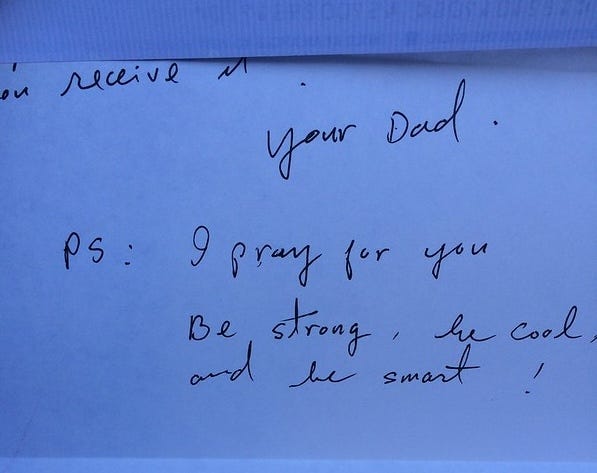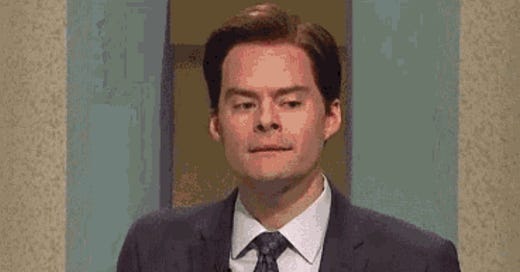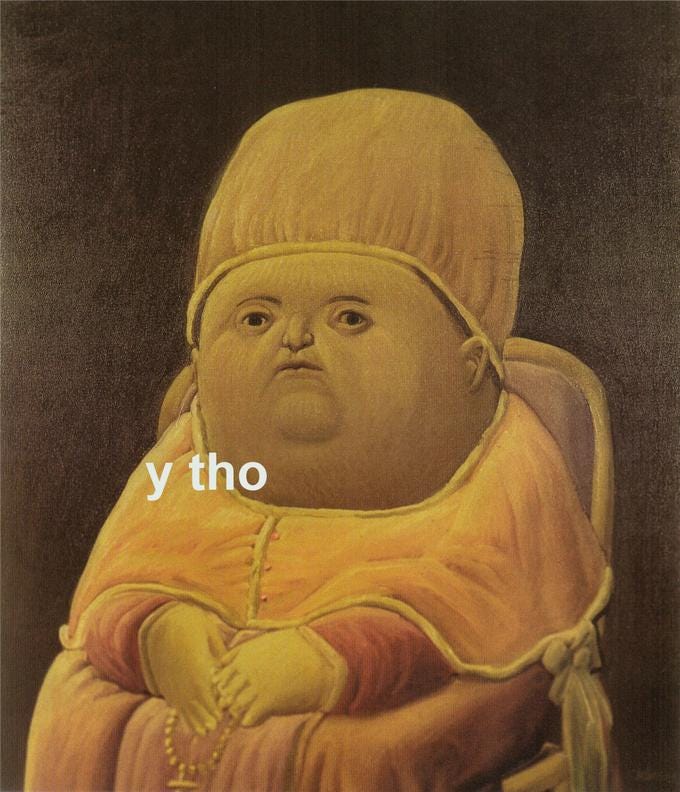Vengeance
Ten hamsters are (still) having a rager in my head. I can’t focus or form a cohesive thought, and sometimes it’s hard to sustain a conversation. I’m continuously distracted; I will go upstairs to fetch a certain thing and return empty-handed four times in a row within the hour. It’s not that there is a fog, but more like a million voices in my head, and my mind keeps short-circuiting into the land of forgetfulness and <BILL HADER VOICE>chaos</BILL HADER VOICE>.
So naturally, I’m watching revenge porn.
My general activities are Hexa Sort and binge-watching television shows. This week, I finished binge-watching Queen Latifah’s The Equalizer (You Will be EQUALIZED) and the K-drama My Name.
( with me as I discuss revenge and television shows. There is a point to all of this).
The last K-drama I loved was The Glory; My Name has the same vibe. They both involve really good-looking and emotionally wounded Korean people out for vengeance. In The Glory, the adult protagonist gets back at her childhood bullies (and I’m not talking about bullying in the form of name-calling. This is some nth-level bullying on display to merit all levels of TW and CW). In My Name, the protagonist avenges her father’s death. It also merits TW and CW alerts.
In My Name, a woman named Jiwoo (so hardcore that she burns off a gang tattoo with her car’s cigarette lighter) lives her life with the single-minded focus of avenging her father’s death. At some point, she is taken under the wing of a gangster whose motivations align with hers. I won’t provide any spoilers, but everyone in that TV show is motivated by revenge, from their career choices to their business plans and, in Jiwoo’s case, their life mission.
Also, there is some amazing fight choreography. The combat involves a lot of knives, slashing, and stabbing. (Gun laws in South Korea are super strict. Civilians don’t get to own guns).
This is what it’s like to tell a story with ten hamsters. Like a fight. With many knives. Get out of my way, hamsters!
But seriously, this post will make sense soon; I’m just “taking the long road,” one that’s more scenic. I will get you there.
The last book I read, Out by Natsuo Kirino, was also about vengeance. And I relished it. It was so angry. So dark. Imagine a woman breaking bad and skipping the methamphetamine part of Breaking Bad and going straight to channeling her exasperation with all of mankind.
According to my TV and literary selections, I am in the mood for revenge.
But why?
Revenge: Cause and effect
There is much literature about revenge (see previous section for starters). Dostoevsky made an entire career on revenge. Whole wars were based on revenge. Love stories, too, involve retaliation against people who are the root cause of agony.
We can largely agree that anger is the primary fuel for revenge (there might be other catalysts like jealousy, hate, or shame). We can also agree that anger is a complicated amalgamation of perceived injustice. Anger that spurs revenge is likely a particular concoction of pain, betrayal, and/or humiliation.
The goal of revenge is to make the other person feel your agony, to release your emotional pain onto them. There is a perception that revenge will be highly satisfying.
We also know this is a nearly impossible goal. Most people don’t feel that release (Golden, 2022).
The other time I was fascinated by revenge stories was during my divorce. As my father urged me, I did my best to “be strong, cool(-headed) [sic] and smart.” I experienced moral injury for sure; I’d had a baby and never thought the man I’d been with for 18 years would leave me when I needed him most. I’d done nothing wrong, even according to my estranged spouse. I’d always prioritized my marriage. I bought into the whole idea of marriage. Sure, I’d suffered a stroke that changed who I was. Sure, we both changed. I could go on and on. Everything I believed in turned out to be false. I was deeply betrayed. I thought maybe I was unlovable. I didn’t know what to believe in anymore. Everything familiar was gone.
I fantasized about revenge. I wanted to t.p. his crash pad. But I did not! I wanted to take a hammer to his cars. But I did not!
Universe, take the wheel! I decided to focus on my own happiness. I was angry, but mostly, I was sad. So I cried a lot. I wept on the floor of my kitchen. I became best friends with that cold, hard marble. Or quartz. Or whatever it is. The previous owner clearly never cooked because that floor is so hard that even at thirty years old, my back would ache when I stood on it while cooking dinner in bare feet. That’s how hard and cold that floor is.
I told myself the best “revenge” was my own happiness. And that the universe would figure its shit stuff out. It totally did. The following is better than anything I could have thought of. And I had NOTHING to do with it!
Ah, vengeance.
What happened was that one of his cars did get totaled. Some neighborhood kids snuck a garden hose into the cracked window of his car while he was out of town. And then they turned the hose on. The car filled with water. The end.
When he told me this had happened, I was aghast. Not about the car so much as about the power of the universe.
Now that I’m fifty years old, I wear orthopedic house slippers. I haven’t wept on the kitchen floor in eleven years.

Moral injury
Many of us (I’d like to think close to fifty percent) have suffered moral injury since November. January has been a rough month. We’ve done everything right and worked hard, yet we are punished for being ourselves and speaking the truth. Some of us aren’t even part of LGBTQIA+ per the new government because now it’s just LGB. Should we be grateful that the LGB part of our fam is still recognized?
NO, DAMMIT. WTF bag of crap is all of this? It’s been LGBT since 1988 and LGBTQ since the 1990s. Also, government workers are being terrorized in other ways.
Moral injury is a kind of PTSD that results from witnessing fucked up shitty events that violate deeply held moral beliefs and values. (January 2025 qualifies, yah?)
According to Svboda in a 2022 Scientific American article, the study of moral injury began in earnest when soldiers from Vietnam, Afghanistan, and Iraq didn’t respond to treatment after their deployments. They were being treated for PTSD and depression but couldn’t recover from thoughts of despair and guilt over things like killing civilians.
Psychologist Brett Litz of the Veterans Affairs Boston Healthcare System grew convinced that “he was witnessing a condition that was different from PTSD and depression. PTSD typically takes root when someone’s life or safety is threatened. But much of the lingering trauma Litz saw in vets had nothing to do with direct personal threat. It was related to mounting guilt and hopelessness, ‘the totality of the inhumanity, the lack of meaning and the participation in grotesque war things,” he says. “They were pariahs—or felt that way, at least’” (Scientific American, 2022).
(OMG, that sounds painfully familiar).
Moral injury also describes the psychic landscape of emergency medicine personnel during the pandemic. In the case of emergency department workers, it was seeing people refuse to mask even in the pre-vaccination days when emergency department workers faced known death when doctors had to make decisions about who lived and who didn’t, and when doctors had to turn away folks from the ER to make room for critically ill folks with COVID-19. Or deciding who got the few ventilators available and other ways medical professionals had to ration care, let alone being verbally abused for administering vaccines.
Moral injury also describes what school teachers suffered during Zoom school. When I saw an article about moral injury during the pandemic, I forwarded it to a primary school teacher friend. She was ecstatic to find something to describe her struggles, and she told me she forwarded it to her therapist.
“That’s it,” she said. “What I have is moral injury.”
Moral injury doesn’t just happen to soldiers, emergency medicine personnel, and teachers. I think so many of us are dealing with moral injury right now. The person in charge of the government (who shall not be named) is himself racist and a model for people to be unapologetically racist (for a few decades, they were apologetically racist, which I mildly preferred). He’s also a fascist. The Constitution has always been a guiding document by which our government ruled; most of us assumed that the government would always abide by those rules. We believed that the Supreme Court would always be just. We have seen that belief violated and dissipated. The horrors grow by the month, the week, the day, the hour.
According to Psychology Today, moral injury’s hallmarks are self-blame, loss of trust, existential doubt, and humiliation. Could we have done more to make things better? If our most sacred institutions fall, what can we rely upon? How do we find meaning? Did we believe in things that were flawed all along? How did this happen (McDonald, 2024)?
And how to move forward?
Acknowledge loss: During my
AnnusAnus Horribilis, I let myself crumple. There was no point in resisting loss. It was so enormous that I had to grieve. I grieved for my past. I grieved my innocence. I grieved the belief in an institution that failed me. I realized patriarchy had failed me. I had been utterly betrayed.Decide on new values and priorities: I visited my therapist again. He asked, “What do you want your life to look like going forward?” What would my new values be? What were my new priorities? I had to rebuild from scorched earth, but I got the opportunity to make my life my own again. I got the chance to ensure everything aligned with my values, priorities, and vision.
Rebuild from your existential crisis: My life no longer had meaning if I based it on the way I’d lived previously. So, I had to reconfigure my existence, which had been turned upside down. I no longer had a husband to center. I no longer had to make compromises for the sake of my marriage. I rebuilt meaning in my life. I was free from patriarchy. Free from the confines of marriage and duty. I had different goals and parameters. I was with a newborn and could not work, so I wrote essays. I wrote an essay that went viral. I wrote and published a book. I changed my career. I got chickens. I got bees. I stewarded an unruly foodscape. I decided I didn’t have to keep a tidy house, and opened the doors to my house to friends. I wanted my house to be a revolving door for any friend who needed a place to stay or hang out. I gave out so many keys to my home that I cannot count how many people have them to this day.
Also, I had to practice optimism. It (and allowing myself to grieve) kept me from getting bitter. It helped me to be proactive rather than reactive.
I'm walking through these steps again in the wake of November, December, and January. I keep thinking of revenge stories. And how I will not enact revenge.
I’m crumpling. I’m acknowledging the loss and a new landscape. Every day is a lot. I don’t even know if I can read the news anymore. The government I learned about in my high school AP Government class is not the government I see today. (I guess it never was). I have friends who work for federal agencies, and they’re on the front lines, seeing things change in front of their faces, seeing supervisors resign or get fired. They’re getting those damn emails. They’re torn between leaving for their sanity or staying and fighting the good fight.
I grieve.
That’s just where I am.
How are you?
But I will have to envision what I want my life to look like, what my values and priorities are in the face of all of this, what I will preserve, no matter what, what I will have to muster, and what I will have to do to preserve these ideals. I will also have to put together an action plan. It’s time to organize.
And in leaning into the existential crisis, knowing that so much is changed forever, how can we take advantage of this moment to rebuild? That may come later. I don’t even see what to do here. So much is being destroyed in a multi-pronged attack, from immigration policy to infection and disease control. How do we come back? That’s a question to ponder as we re-organize.
As for optimism, Art is an act of optimism. That someone will care. That someone will read. That someone will review. That someone will connect.
How are you?
In my journey back from a long-ass writer’s block and self-doubt, I slowed down in January. It’s too hard. The headwinds have increased. I had a stupid biopsy. Another anomaly has been found in my body. So I will likely have to have another biopsy on another part of my body. The politics are more frightening than ever. Some of us are being erased. Some of us are being rounded up and expelled. My mom and dad are dead. I am overwhelmed. I’m going through the last stages of perimenopause so that my brain occasionally does random Groucho Marx eyebrow wiggles in the midst of serious thought. How can I write?
But here I am. Because I must.
I also kid you not—in the middle of drafting this post, my dear friend Nova Ren Suma posted the following quote by Roberto Lugo on her Instagram stories:
Art means we aren’t giving up.
How are you?






I had this saved in my email because I wasn't ready to read it yet. As always, thank you for writing!!! I hope your next biopsy goes well. I hope you keep creating. I will continue imagining the future I believe in, where we value art and science and community. Agreed, we need to organize. But I'm exhausted. Can someone else organize and tell me where I fit? That's how I'm feeling. There's just so much that I've pulled back. Trying to be selective with my outrage because everything the administration is doing feels designed for the drama. Trying to slow down before I come apart. Hoping some more select cars get totaled as the universe takes care of its nonsense!